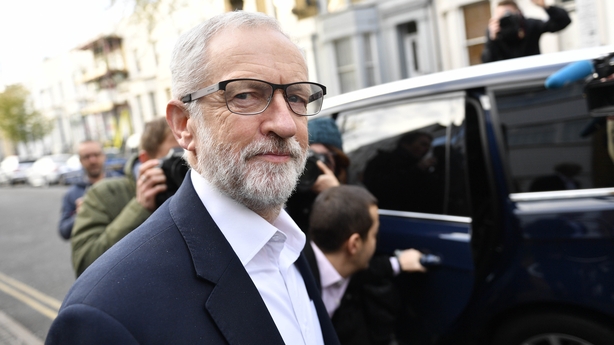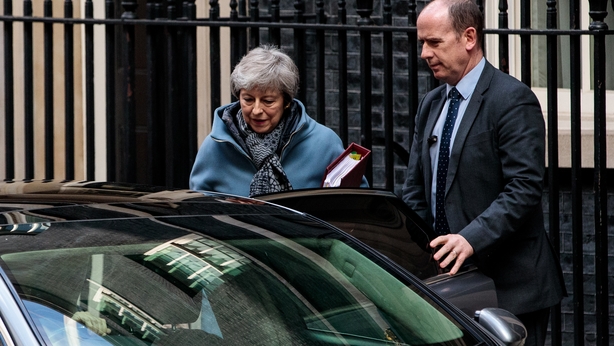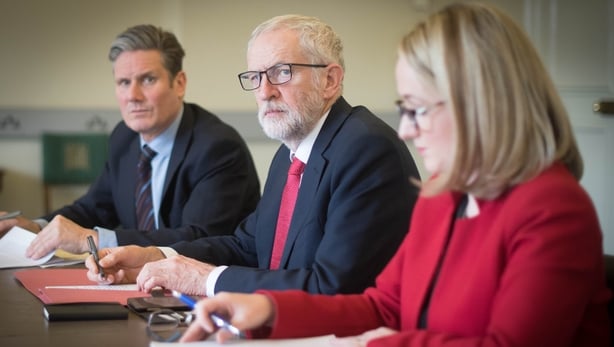Proposals to further delay the date of Brexit have moved closer to becoming law after they squeaked through the Commons by one vote.
MPs supported the European Union (Withdrawal) (No 5) Bill at third reading by 313 votes to 312.
The draft legislation tabled by Labour former minister Yvette Cooper requires Prime Minister Theresa May to table a motion seeking MPs' approval for an extension to the Article 50 process beyond 12 April.
It is part of a parliamentary bid to prevent a no-deal departure from the EU.
Tory Brexiteers strongly opposed the measures and, shortly before the final vote, they expressed their frustration at the Bill clearing all stages in the Commons in a matter of hours.
Peter Bone (Wellingborough) urged Speaker John Bercow to "make this farce stop" and prevent further votes.
The Bill will undergo further scrutiny in the Lords at a later date, potentially as early as Thursday.
Meanwhile, talks on a possible compromise Brexit deal are to continue tomorrow after a meeting between British Prime Minister Theresa May and Jeremy Corbyn earlier today, which the Labour leader described as "useful but inconclusive".

The meeting sparked fury among some Conservatives, with two ministers quitting Mrs May's government and a string of backbenchers voicing their anger during Prime Minister's Questions in the House of Commons.
The talks followed Mrs May's dramatic announcement that she was willing to reach out across the floor of the Commons to find a deal that would allow her to obtain a short delay to Brexit at an emergency EU summit on 12 April.
Downing Street said: "Today's talks were constructive, with both sides showing flexibility and a commitment to bring the current Brexit uncertainty to a close.
"We have agreed a programme of work to ensure we deliver for the British people, protecting jobs and security."
Speaking after the meeting, Mr Corbyn said Mrs May has to accept that her Brexit deal is dead and she needs to move in Labour's direction.

Mr Corbyn reiterated his view that another referendum should be held to prevent either a no-deal Brexit or a bad deal, but he said no "red lines in the future" on any potential agreement he might reach with the prime minister were discussed.
Following lengthy talks, which included senior frontbenchers from both sides, Mr Corbyn said: "I want the government to understand that the house does not support the deal that she has agreed.
"She has got to come up, even at this very late stage, with something that is acceptable to the house, which does move in the direction that I have said the Labour Party wants in order to reach an agreement with the EU.
"The dangers of crashing out with no deal are very, very serious, very serious indeed - they have to be avoided.
"We had a discussion and there hasn't been as much change as I expected, but we are continuing to have some discussions tomorrow morning to explore some of the technical issues.
"The meeting was useful but inconclusive."
'Useful but inconclusive': @jeremycorbyn on his #Brexit meeting with @theresa_may | https://t.co/9Pdslg3lZQ pic.twitter.com/ynOXbCRkQB
— RTÉ News (@rtenews) April 3, 2019

It is understood that a planning meeting took place in parliament this evening ahead of intensive technical discussions by negotiating teams tomorrow.
Mrs May has said she hopes to find a solution that both leaders can support, or failing that, a system of indicative votes which both will recognise as binding.
But Mrs May's olive branch to Mr Corbyn has enraged the staunchly pro-Brexit wing of her Conservative Party.
Junior minister Nigel Adams resigned in protest at her "grave error" in judgement.
Fellow junior minister Chris Heaton-Harris said he was resigning his Brexit department post because he wanted the UK to leave on the original deadline date of 29 March.
"I simply cannot support any further extension," he said in his resignation letter to Mrs May.
She has also met Scottish and Welsh first ministers Nicola Sturgeon and Mark Drakeford.
Leading Brexiteer Jacob Rees-Mogg described the offer of talks to Mr Corbyn as "deeply unsatisfactory" and accused Mrs May of planning to collaborate with "a known Marxist".
In a boost to the prime minister, MPs failed in a bid to take over the Commons timetable on Monday for a third round of "indicative votes" on Brexit alternatives.
Speaker John Bercow wielded his casting vote to block the debate after MPs tied 310-310 in scenes not seen in the Commons since the Maastricht battles in 1993.
The result clears Monday for a potential attempt by Mrs May to get a consensus Brexit deal through parliament.
MPs voted by a majority of one to allow a cross-party bid to pass legislation to block a no-deal Brexit in a single day.

